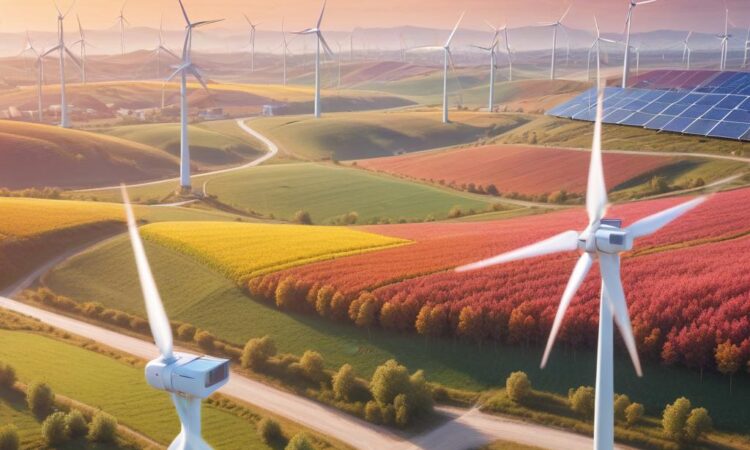Global Energy Transition: A Reshaping Force
The global transition to renewable energy sources is gaining momentum, driven by climate change concerns and government policies. Companies are investing in renewable energy technologies, exploring energy efficiency solutions, and adapting to the evolving energy landscape. This trend is reshaping the energy sector and influencing global economies.
A World Embracing Renewables
The urgency to combat climate change has spurred a global shift towards renewable energy sources. Solar, wind, and hydropower are becoming increasingly competitive, thanks to technological advancements and falling costs. Governments worldwide are implementing policies to incentivize renewable energy adoption, such as tax credits, subsidies, and renewable portfolio standards.
This transition is not limited to developed countries. Developing nations are also embracing renewable energy, recognizing its potential to unlock economic growth, create jobs, and improve energy security. Many developing countries are rich in renewable energy resources, such as solar and wind, and are strategically positioning themselves to become leaders in the clean energy sector.
The Power of Innovation
Technological innovation is playing a crucial role in driving the energy transition. Advancements in solar panel efficiency, wind turbine design, and battery storage are making renewable energy more cost-effective and reliable. Research and development efforts are constantly pushing the boundaries of clean energy technology, opening up new possibilities for sustainable energy solutions.
Investing in a Sustainable Future
Private and public investments are pouring into the renewable energy sector. Companies are recognizing the long-term economic potential of renewable energy and are investing in projects, research, and development. Governments are allocating funds to support renewable energy initiatives and foster a conducive regulatory environment.
This surge in investment is creating new business opportunities and attracting talent to the renewable energy sector. The transition is fostering a new generation of entrepreneurs, investors, and innovators who are committed to building a sustainable energy future.
Navigating the Challenges
While the transition to renewable energy offers numerous benefits, it also presents challenges. One key hurdle is the need for robust energy storage solutions to address the intermittent nature of solar and wind power. Integrating renewable energy sources into existing energy grids requires sophisticated technology and careful planning.
Another challenge is the need for workforce development to ensure a skilled workforce can build, operate, and maintain renewable energy projects. Transitioning from a fossil fuel-based economy to a renewable energy-based economy requires a comprehensive approach that addresses the needs of workers and communities impacted by the shift.
A Collaborative Effort
The global energy transition requires collaboration and cooperation among governments, businesses, and individuals. International agreements, such as the Paris Agreement, provide a framework for global action on climate change. Governments need to create policies that support renewable energy development and incentivize innovation.
Businesses play a critical role in investing in renewable energy projects, developing new technologies, and integrating sustainability into their operations. Individuals can contribute by choosing renewable energy options, reducing their energy consumption, and advocating for policies that promote clean energy.
A Sustainable Future
The global transition to renewable energy is a monumental undertaking, but one that is essential for our future. By harnessing the power of innovation, collaboration, and investment, we can create a cleaner, more sustainable energy future for generations to come.
Conclusion
The global energy transition is a transformative force reshaping the energy sector and influencing global economies. It presents both opportunities and challenges, requiring a collaborative effort from governments, businesses, and individuals. By embracing innovation, investing in clean energy technologies, and adopting sustainable practices, we can transition to a renewable energy future, ensuring a healthier planet and a brighter future for all.

